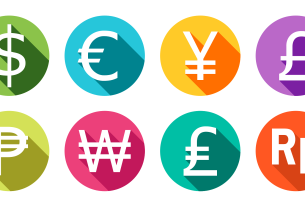By Solomon Alaka.
Date: November 16, 2024
Location: Global
In today’s fast-paced world, judgments are often made quickly, sometimes based on brief encounters, third-party accusations, or a person’s past actions. This propensity for fault-finding and labeling individuals is rooted in human psychology and cognitive biases that shape how we interpret the world around us. Research consistently shows that people are naturally inclined to confirm their existing beliefs and preconceived notions, which can have profound effects on how we view others. The practice of labeling individuals without understanding their unique circumstances is not only unfair but can also lead to misunderstandings, conflict, and emotional harm.
This article explores the psychology behind labeling, how it plays a role in social dynamics, and the consequences of jumping to conclusions based on incomplete information. By examining cognitive biases, social psychology theories, and real-life examples, we can understand the importance of challenging these biases to foster empathy, fairness, and deeper understanding.
The Psychology of Labeling: Understanding the Biases
Humans are hardwired to simplify the world around them. The brain uses shortcuts, known as cognitive biases, to help process vast amounts of information quickly. One of the most common biases in social interactions is confirmation bias, which refers to the tendency to seek out information that confirms existing beliefs or expectations, while disregarding or minimizing information that contradicts them.
This bias can lead to labeling someone based on a small set of interactions or secondhand information. For example, if someone is accused of being dishonest by a third party, others may quickly adopt this view without seeking further context or understanding the full circumstances. Similarly, brief negative encounters can lead to broad, sweeping judgments about a person’s character.
The Role of Social Influence and Preconceived Notions
Social influence plays a significant role in the way we label others. When an individual or group labels someone in a particular way, others are likely to follow suit due to social conformity. This is especially true in environments where group identity and belonging are prioritized over individual thought. Peer pressure, social norms, and group dynamics can reinforce the labeling process, even when the person being labeled may not deserve the characterization.
Furthermore, stereotypes—often based on race, gender, social status, or past experiences—can significantly impact the way individuals are perceived. These stereotypes are mental shortcuts that simplify the processing of social information, but they often come with harmful assumptions. For instance, a person from a particular socio-economic background might be labeled as “lazy” or “untrustworthy” without understanding their unique situation or struggles.
The Impact of Fault-Finding and Labeling on Individuals
The act of labeling can be extremely damaging, both to the individual being labeled and to the society at large. When someone is quickly deemed “bad,” “disrespectful,” or “fraudulent,” the consequences can be far-reaching and long-lasting. Self-fulfilling prophecies often occur in such situations—when people internalize the negative labels others place on them, they may begin to behave in ways that align with these labels, even if they would not have otherwise.
1. Emotional and Psychological Consequences:
Being labeled negatively can lead to low self-esteem, anxiety, and depression. The individual may feel constantly judged or misunderstood, which can erode their sense of identity and personal worth. This phenomenon is especially harmful when labels are based on misunderstandings or incomplete information. The stress and emotional toll can further exacerbate existing mental health issues and impair the person’s ability to form meaningful relationships or succeed in social or professional contexts.
2. Social Alienation:
People who are labeled or judged too quickly may also experience social alienation. When individuals are excluded or treated differently because of a label placed upon them—whether it’s due to an accusation or a brief interaction—they may withdraw from social or professional settings. This isolation can prevent individuals from growing or changing, as they are not given the chance to demonstrate their true selves.
3. Damaging Stereotypes and Bias:
Labeling can perpetuate harmful stereotypes and biases in society. For instance, individuals who are consistently labeled as “troublemakers” or “lazy” may find it more difficult to break free from societal expectations, even if their actions or circumstances have changed. Over time, these stereotypes become entrenched in societal attitudes, reinforcing divisions between different groups and leading to discrimination and prejudice.
Why We Judge So Quickly: Evolutionary and Cultural Insights
From an evolutionary standpoint, the human brain developed to make quick judgments as a survival mechanism. Early humans needed to assess threats quickly to protect themselves from danger, and this instinct often led to snap judgments about others. While the world has changed considerably since then, our brains are still inclined to form quick conclusions based on limited information. This is why, in modern society, we are so quick to judge others based on first impressions or third-party accounts.
Culturally, the desire for certainty and order also drives the tendency to label others. In many societies, people are socialized to conform to specific roles and behaviors. Those who deviate from the norm may be labeled as “outliers” or “problematic.” This labeling helps maintain a sense of control and predictability, but it often overlooks the complexities of individual situations.
The Dangers of Relying on Third-Party Accusations
In today’s digital age, information (and misinformation) spreads rapidly. Often, labels are formed based on third-party accusations or rumors, without individuals having the chance to defend themselves or clarify the context. Social media, in particular, amplifies this tendency, with people often jumping to conclusions about others based on limited or incomplete information.
Social media influencers, journalists, and online communities can inadvertently contribute to the spread of negative labels. A viral accusation or an emotional post can lead to widespread condemnation of a person, sometimes with little regard for the accuracy of the claims. As a result, many individuals are quickly labeled and judged without the opportunity for due process or a chance to explain their side.
Breaking the Cycle: How to Avoid Fault-Finding and Labeling
While the human tendency to label others is deeply ingrained, it is possible to challenge this behavior and foster more empathetic, open-minded interactions. Here are several strategies for breaking the cycle of fault-finding and labeling:
- Practice Critical Thinking:
Take time to question your assumptions and avoid jumping to conclusions. Ask yourself: Are you basing your judgment on facts, or are you allowing cognitive biases or prejudices to influence your view? - Seek Multiple Perspectives:
When confronted with accusations or negative labels about a person, make an effort to seek out alternative viewpoints. This can involve speaking directly to the person being accused or researching the issue more thoroughly before drawing conclusions. - Challenge Stereotypes:
Actively challenge stereotypes and encourage others to do the same. Avoid generalizations about people based on their appearance, background, or a brief interaction. - Foster Empathy:
Empathy is the ability to understand and share the feelings of others. Try to put yourself in the other person’s shoes before labeling them. Consider their circumstances, struggles, and past experiences before jumping to conclusions. - Encourage Open Dialogue:
Promote open, honest communication in your personal and professional relationships. When misunderstandings arise, take the time to clarify and understand the other person’s perspective.
Conclusion: The Importance of Fairness and Understanding
In an increasingly interconnected world, where information spreads quickly and judgments are often made hastily, it is essential to recognize the human tendency to label and the damage it can cause. By actively questioning our biases, challenging stereotypes, and approaching others with empathy and an open mind, we can begin to break the cycle of fault-finding and prejudgment. Everyone has a story, and labeling someone based on a limited view of their circumstances not only harms the individual but also reinforces division and misunderstanding within society.
By moving beyond superficial judgments and taking the time to truly understand the complexities of others, we can foster a culture of fairness, compassion, and respect—one that values the unique experiences and inherent worth of every individual.
References:
- Tversky, A., & Kahneman, D. (1974). Judgment under uncertainty: Heuristics and biases. Science, 185(4157), 1124–1131.
- Nisbett, R. E., & Wilson, T. D. (1977). Telling more than we can know: Verbal reports on mental processes. Psychological Review, 84(3), 231–259.
- Fiske, S. T., & Taylor, S. E. (2017). Social Cognition: From Brains to Culture. McGraw-Hill Education.
- The Social Psychology of Stigma (2019). Cambridge Handbook of the Social Psychology of Stigma, edited by Todd F. Heatherton, R. J. Kleck, and Mark P. M. Leary. Cambridge University Press.



